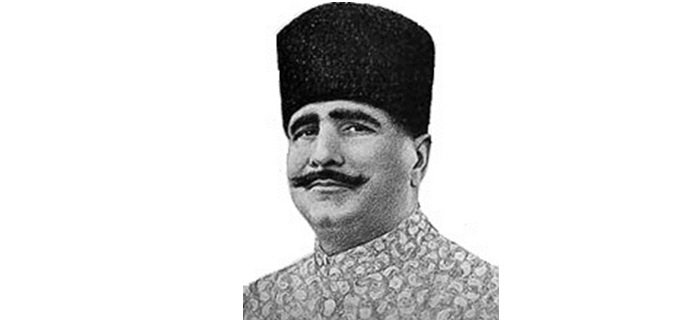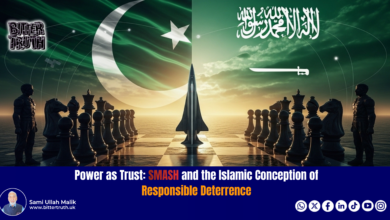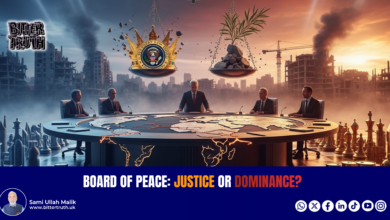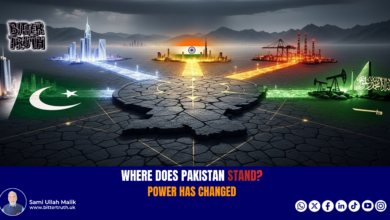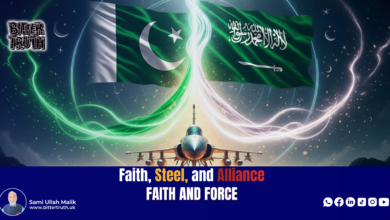Determination and Courage: Iqbal’s Message to the Muslim Youth
Awakening the youth of Islam: Iqbal's message
Allama Muhammad Iqbal was a shining star that emerged on the horizon of the Muslim Ummah at the dawn of the 20th century. His light transcended the boundaries of time and space, guiding the Muslim community towards its destination. Today, more than 80 years have passed since Iqbal’s departure, but his profound thoughts and farsighted vision continue to provide accurate solutions to the problems faced by the Ummah. The “Sage of the Ummah” warned that irreligious forces, under the leadership of the West, would act as an army of darkness, working tirelessly on every front to undermine the roots of the Muslim community. These forces would employ inhumane tactics, glorifying the oppressor as the oppressed and presenting tyranny as justice, all while proudly claiming to grant freedom. Iqbal depicted this situation years ago in his poetry:
باطل کے فال وفرکی حفاظت کے واسطے
یورپ زرہ میں ڈوب گیادوش تاکمر
To protect the falsehood’s reign,
Europe girded itself with armour from head to waist.
Yet, despite this, Iqbal remained hopeful that the younger generation, through hard work and continuous effort, could change the circumstances. He addressed the youth in many of his poems, such as “Khitaab Bah Naujawanan-e-Islam” (Address to the Youth of Islam), “Javed Ke Naam” (To Javed), “Javed Se Khitaab” (Address to Javed), “Ali Garh Ke Talaba Ke Naam” (Adress to the Students of Aligarh), “Abdul Qadir Ke Naam” (To name of Abdul Qadir), and “Aik Falsafah Zadah Syed Zade Ke Naam” (To a Philosophically Confused Syed). In these verses, he passionately expresses his heartfelt wishes for the youth:
جوانوں کوسُوزجگر بخش دے
مراعشق میری نظربخش دے
“Grant the youth the fire of passion,
Grant my love the vision of clarity.”
To elevate the Muslim Ummah to the heights of progress and development, Iqbal beautifully wove the events of Islamic history into his poetry, inspiring the youth with fervour and sincere passion. It can be said that Islamic history is intricately woven into Iqbal’s poetry, like fragrance in a flower. He poetically depicted many unforgettable events from Islamic history, ensuring they would continue to shine on the horizon of high literature, stirring the hearts of readers with enthusiasm and zeal.
In his poem “Tariq Ki Dua” (Tariq’s Prayer), Iqbal speaks about the famous Muslim general Tariq ibn Ziyad:
یہ غازی یہ تیرے پراسراربندے
جنہیں تونے بخشاہے ذوق خدائی
دونیم اُن کی ٹھوکرسے صحراودریا
سمٹ کرپہاڑاُن کی ہیبت سے رائی
“These warriors, Your mysterious servants,
Whom You have blessed with a taste for divinity,
With a single blow, they split the desert and the sea,
Mountains shrink to pebbles before their awe.”
Tariq ibn Ziyad belonged to the Berber tribe. The famous Muslim commander Musa ibn Nusayr trained him under his guidance. The people of Andalusia presented their grievances against the tyrannical King Roderic to Caliph Walid ibn Abd al-Malik. On the Caliph’s orders, Tariq ibn Ziyad landed on the coast of Spain with seven thousand Mujahideen and ordered all the ships to be burned, so no one would even think of returning. Against Roderic’s army of one hundred thousand, Tariq had only seven thousand men. At this moment, Tariq gave a passionate speech and then prayed to Allah for victory. In “Tariq’s Prayer,” Iqbal sought to awaken the spirit of Jihad and the desire for martyrdom in the youth of Islam:
دلِ مردہ مومن میں پھرزندہ کردے
وہ بجلی کہ تھی نعرہ لاتذرمیں
عزائم کوسینوں میں بیدارکردے
نگاہِ مسلماں کوتلوارکردے
Revive the dead heart of the believer
That lightning was in the slogan Takbeer
Awaken the ambition in the breasts
Turn the eyes of the Muslims into swords
Similarly, Iqbal mentioned the Battle of Yarmouk in his poem “Jang-e-Yarmouk ka Aik Waqia” (An Incident from the Battle of Yarmouk). Islamic history is full of such events where a small group defeated a much larger army, but the event from the Battle of Yarmouk mentioned by Iqbal fills the hearts of the youth with a passion for martyrdom. A young soldier, breaking military discipline, comes to Syedna Abu Ubaidah (RA) and says, “I can no longer wait; please allow me to fight now. And if you have a message to send to the Prophet’s court, I am ready.” Iqbal expressed the young warrior’s desire for martyrdom in these words:
اے بوعبیدہ رخصتِ پیکار دے مجھے
لبریز ہو گیا مرے صبر و سکوں کا جام
بے تاب ہو رہا ہوں فراقِ رسول میں
اک دم کی زندگی بھی محبت میں ہے حرام
جاتا ہوں میں حضورؐ رسالت پناہ میں
لے جاؤں گا خوشی سے اگر ہو کوئی پیام
“O Abu Ubaidah, grant me permission to fight,
My cup of patience and peace is overflowing.
I am restless in the separation from the Prophet,
Even a moment of life without love is forbidden.
I go to the presence of the Prophet (PBUH), Gladly, if there is any message to be taken.”
The commander of the army, Abu Ubaidah, responds to him:
بولاامیرفوج کہ وہ نواں ہے تو
پیروں پہ تیرے عشق کا واجب ہے احترام
پوری کرے خدائے محمدؐ تری مراد
کتنا بلند تیری محبت کا ہے مقام
“The commander said, ‘Though you are young,
Your love commands respect from your elders.
May God of Muhammad fulfill your desire,
How high is the rank of your love!'”
In his stirring poems, Iqbal introduces the youth to their past and the achievements of their forefathers through historical events. At the same time, he reminds them that even in this age of decline, examples exist where Muslim armies, despite extremely unfavourable conditions, did not let go of justice and righteousness.
In the poem “Hasira Adrana” (The Siege of Adrianople), Iqbal recounts the events of the 1912 battle when the Balkan states of Bulgaria, Serbia, Romania, and Greece attacked Turkey and laid siege to the European city of Adrianople. The Turkish army was led by their commander, Ghazi Shukri Pasha, who fiercely resisted an army of over one hundred thousand for nearly five months. During this time, the Muslim army ran out of supplies and food. Shukri Pasha ordered the seizure of the remaining food stocks from the citizens. The city also housed non-Muslims who paid Jizya, in return for which the Muslim state was responsible for their protection. The city’s Mufti issued a fatwa against the commander’s order, declaring that the property of Dhimmis was forbidden for the Muslim government and army.
The world witnessed that even in such a dire situation, the Muslim army bowed to the command of God. Despite the life-and-death struggle, they did not touch the property of the Dhimmis:
چھوتی نہ تھی یہودونصاریٰ کامال فوج
مسلم،خداکے حکم سے مجبورہوگیا
“The wealth of Jews and Christians was untouched,
The Muslim army, compelled by God’s command.”
Iqbal also praised the spirit of freedom among Muslim women in his poem “Fatima bint Abdullah.” This Arab girl was martyred during the 1912 Battle of Tripoli while offering water to the Mujahideen on the battlefield. Iqbal expressed Fatima’s zeal for Jihad in these words:
یہ جہاداللہ کے رستے میں بے تیغ وسپر
ہے جسارت آفریں شوق شہادت کس قدر
This is Jihad in the way of Allah, without sword or shield,
What courage, what a passion for martyrdom!”
Expressing his hopes for the youth of the Ummah, Iqbal says:
اپنے صحرامیں بہت آہوابھی پوشیدہ ہیں
بجلیاں برسے ہوئے بادل میں بھی پوشیدہ ہیں
Hidden in your deserts are many hurricanes,
In the clouds that have rained are still hidden lightning bolts.
He urges the youth to discover themselves, reminding them that their primary duty is to be callers and preachers of truth. Their mission is to eliminate evil and establish goodness. They are the bearers of a religion that has come to dominate the world and eradicate oppression, idolatry, and injustice, bringing salvation to humanity. Every Muslim must strive to establish this religion in their own lives, homes, surroundings, and society, and work to implement its system of life collectively. Iqbal says:
بندۂ حق وارثِ پیغمبراںؑ
او نہ گنجددرجہانِ دیگراں
The true believer is the inheritor of the Prophets.
He does not fit into the world of others.
A true believer is the inheritor of the Prophets, meaning he builds his world according to his faith. If the surroundings do not conform to his beliefs, he brings about a revolution and creates a new world where he is free to live according to Allah’s religion and establish it in his life.

